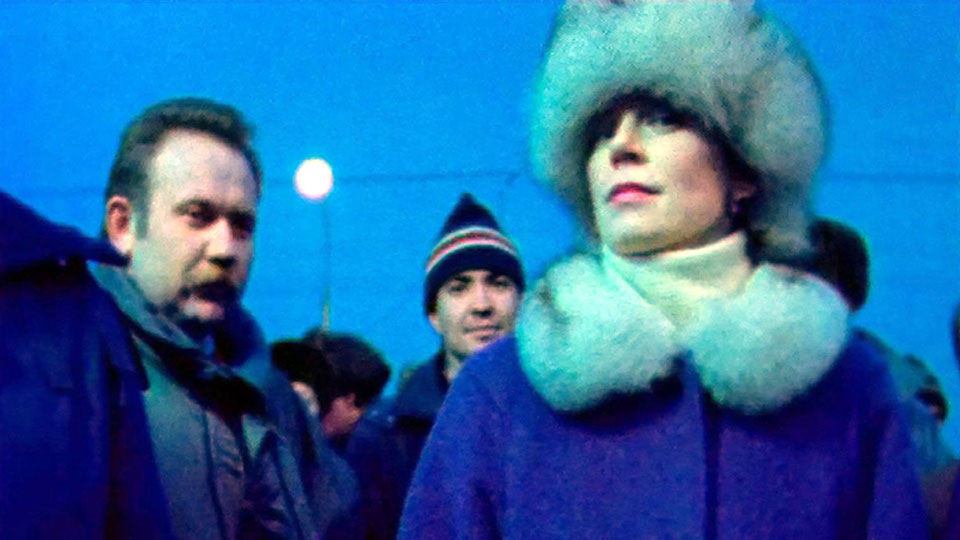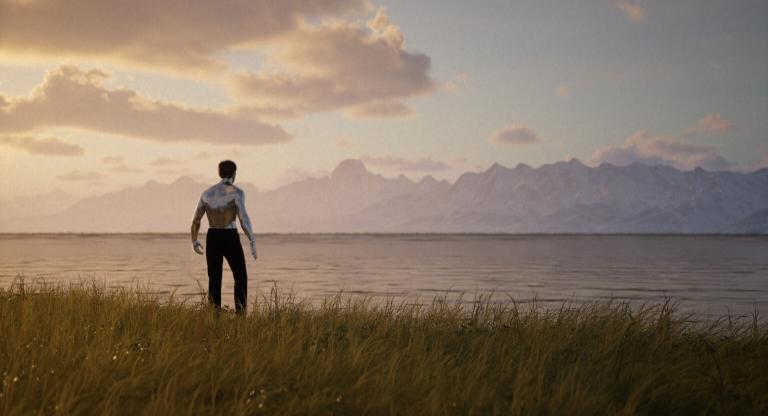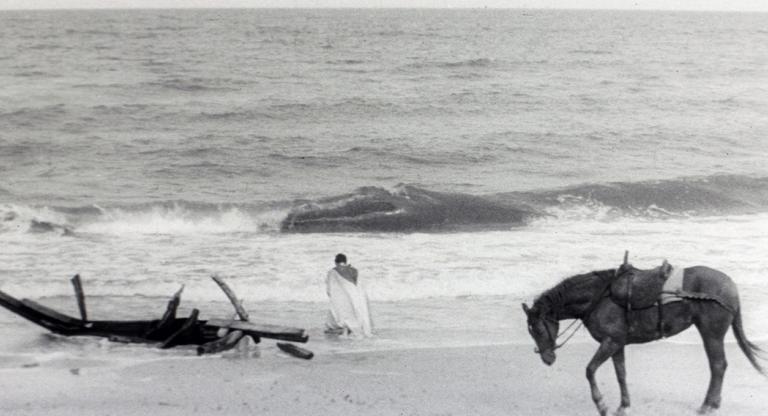Reflecting on her longtime collaboration with Chantal Akerman in the November issue of “Versopolis Review,” editor Claire Atherthon recalled the late auteur’s impetus for D’Est as a project born not of morbid curiosity, but a kind of existential and historic urgency: “Chantal [said] that she wanted to film Eastern Europe, while she still had a chance. She had no clear intention, nothing to demonstrate, nothing to denounce nor to document.”
One could easily imagine the daughter of Polish refugees casting a jaundiced eye on the Soviet Union’s long-awaited fall. Instead, the resulting film fulfilled her non-agenda beyond expectation. In plaintive landscapes and portraits, Akerman captured a brief twilight time before erstwhile Eastern Bloc nations traded the relative stability of the Iron Curtain for the materialist turbulence of Western free-market capitalism.
This meditative travelogue is a heady mixture indeed, moving without judgement through the cities, sprawling suburban housing developments, and idyllic country villages of three former Soviet nations — Eastern Germany, Poland, and Mother Russia — as their citizens adjust to disruption and collapse in real time. Far from a dreary anthropological study, Akerman’s prosaic time capsule offers a fleeting view of the calm center in a political tempest. Combining trademark static set-ups with staged tableaux of her subject’s living rooms, bedrooms, and local hangouts, D’Est elevates these mundanities into a sublime realm, offering viewers a welcome respite from our own state of constant crisis.



